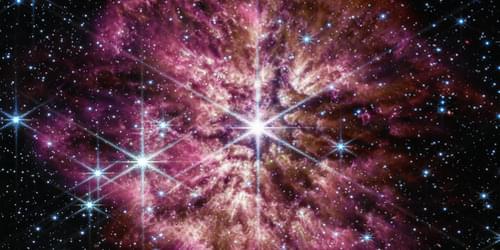Adding what seems like too many protons to a nucleus can increase one measure of its stability.
Understanding the causes of nuclear instability is essential for studies of the astrophysical processes that create new elements. The key determinant of a nucleus’s stability is the ratio of the number of neutrons to the number of protons it contains. For many heavy nuclei, if this ratio is far from 1.5, the nucleus is unstable. But even a nucleus with a ratio well below 1.5 (a “proton-rich” nucleus) can gain stability from another effect—having a “magic” number of protons or neutrons. Now researchers have shown that such stability can increase for a proton-rich nucleus as more protons are added in [1]. The results support the idea of an “island of stability”—potentially stable nuclei having combinations of proton and neutron numbers much different from those that are known.
According to experiments on proton-rich nuclei that contain around 126 neutrons, a magic number, the magic-number-induced stability fades as more protons are added. That’s because the higher proton number eventually renders the nucleus unstable. To see if the same behavior occurs for nuclei that contain around 82 neutrons, another magic number, Huabin Yang of the Chinese Academy of Sciences and his colleagues studied osmium-160. This nucleus contains 84 neutrons and 76 protons, more protons than any other 84-neutron nucleus.
